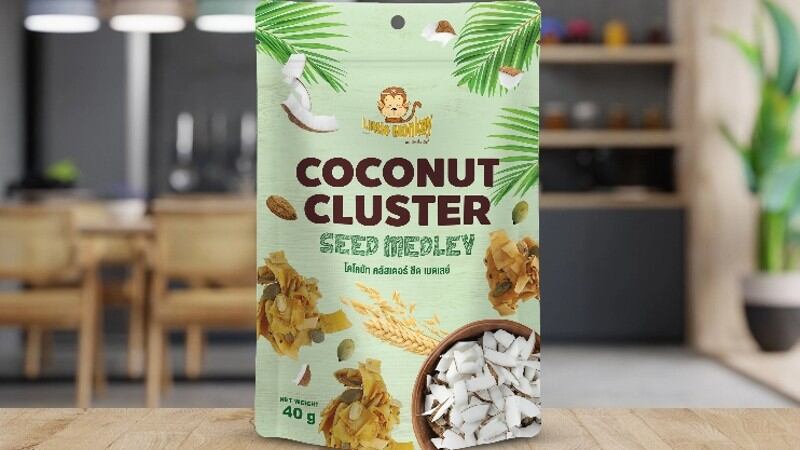JD Food has been in the food and beverage industry for several decades with a strong presence in seasonings and processed foods, but has recently decided to branch out into the snacking space with a coconut snack brand dubbed Crispconut.
“It is no secret that the major trends dominating the food and beverage industry currently are health and affordability, but the real challenge has always been to combine these together to make a good product,” JD Food Export Manager Pornpan Tangkamolsuk told FoodNavigator-Asia.
“We have attempted to make the perfect fusion of these with our Crispconut coconut clusters, a healthy snack which has been developed using coconut to increase the value to consumers.
“Apart from the natural goodness of coconuts, we have also added ingredients such as chia, pumpkin and sunflower seeds, fruits like cherries and raisins, and puffed rice in order to improve the nutritional and taste profile.
“The initial branded range will be available in caramel, original and chocolate flavours; and we are also producing OEM products in more flavours such as mango and wasabi to appeal to an even wider audience via the B2B route.”
The firm is targeting Crispconut sales for both local and export markets, but cited very different marketing strategies due to current consumption culture differences.
“We have already started exports to the European Union in markets like France, and the marketing there is straightforward as a healthy snack as this concept is already very normal in western markets, including the organic and natural taglines,” she said.
“This is less common here in Asia however as the focus for healthier products tends to be stronger for children, so we are focusing on this section whilst also amping up educational efforts on natural and organic foods.
“That said, the snacking trend is very strong here alongside health and we have already seen this with the rise of protein chips – everyone likes snacks, but wants products that can be eaten without feeling the accompanying guilt.”
Cost and regulatory challenges
Despite coconut being a relatively plentiful raw material in Thailand, the firm is also feeling the impacts of rising costs.
“We are very aware that product costs are going up - we are being very careful about controlling the various aspects of the supply chain from the materials to the labour to the operations to the transportation, but still, most of these keep going up,” she said.
“As a company we also export a lot of our products to overseas markets, and in addition to the cost challenges we have also seen a number of regulatory challenges even in the region.
“For example, in Thailand our products have been certified halal, but when we export to Indonesia we tend to need to go through another process as this certification is not enough for them; and now when exporting seasonings to the EU there is an additional need for sustainability certification as well.
“Our seasoning products are very well established with a long history, but due to these regulatory differences the process of entering new overseas markets has been quite difficult – we are hoping that as the healthy snacking trend continues to grow over the next couple of years, this means that more doors will open for our snack products such as Crispconut.”


